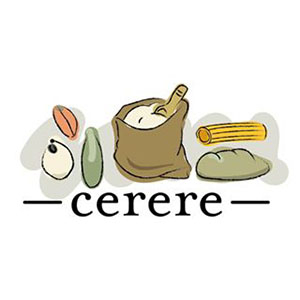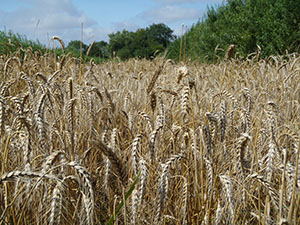
Acronym : CERERE
Contract Period : 01/11/2016 - 31/10/2019
Project Webpage : http://cerere2020.eu/
Main Funder : EU Horizon 2020
ORC Staff Contact : Susanne Padel

The project will promote innovation through diversity-based ‘alternative’ cereal food systems in Europe through knowledge exchange and communities of practice adopting a bottom-up approach in multi-actor network.
The overall aim is to promote innovation through diversity-based ‘alternative’ cereal food systems in European agriculture via knowledge exchange between researchers, producers and other relevant stakeholders.
These ‘alternative’ systems are based on local, decentralised approaches to production and processing, regard to quality and health, and short supply chains for products with strong local identities. Diversity is embedded within these food systems, through the agro-biodiversity in the fields, improving resilience and adaptation to current challenges, and through a diversity of approaches, contexts and actors in food manufacturing and marketing. Diversity thus becomes a cross-sectorial issue and helps support innovation in the agronomic, processing, and marketing phases in response to consumers’ demand for health and sustainable products.
The project will create a multi-actor network of researchers and ‘practice communities’, adopting a bottom-up approach. It will work with EIP-AGRI Operational Groups to synthesize, share and disseminate existing best practices, research results and co-innovative solutions in organic/low-input cereal food systems, focusing particularly on agrobiodiversity and the associated values of quality and health.
Through its activities and training products, CERERE will address the key issues and most urgent needs of these systems: availability/ management of adapted germplasm, use of rotations, soil fertility, weed competitiveness and crop protection strategies, quality-oriented processing techniques, alternative marketing schemes. For each of these, CERERE will identify opportunities for better integrating science and practice, paving the way for more dynamic interactions between the two domains.
ORC will contribute to the identification and synthesis of a range of best practices and research results relevant for building innovative, diversity-based and quality and health- centred cereal food systems.
Read interview with Holly Tiffen of Grown in Totnes in ORC Bulletin 128 (Summer 2019) Pioneering a local grain economy in Devon: Grown in Totnes
Read interview with Kimberley Bell of the Small Food Bakery YQ and the rise of an alternative grain network